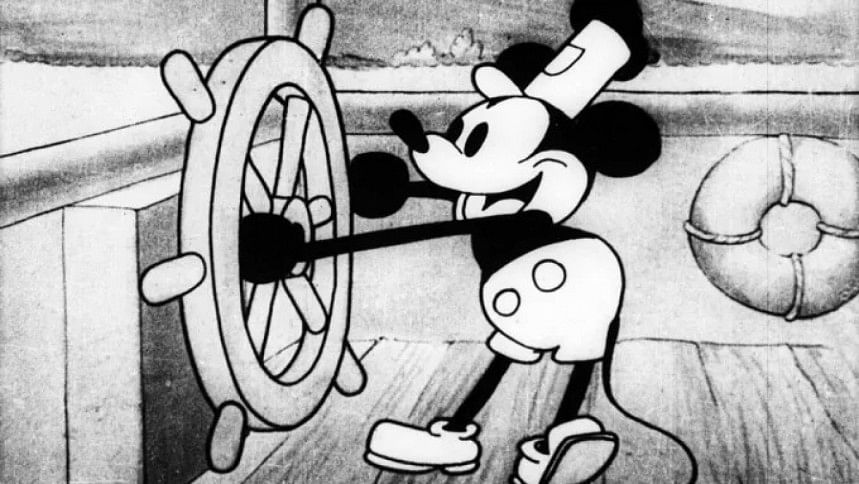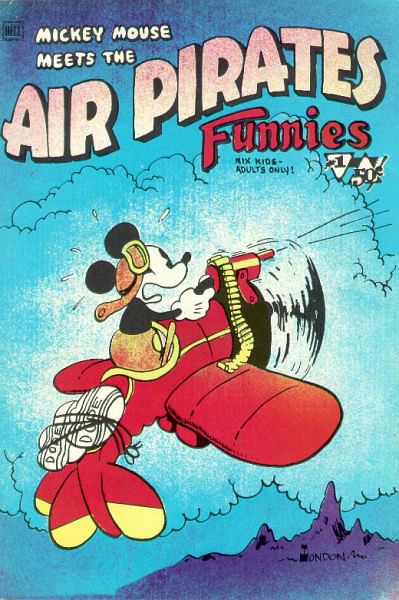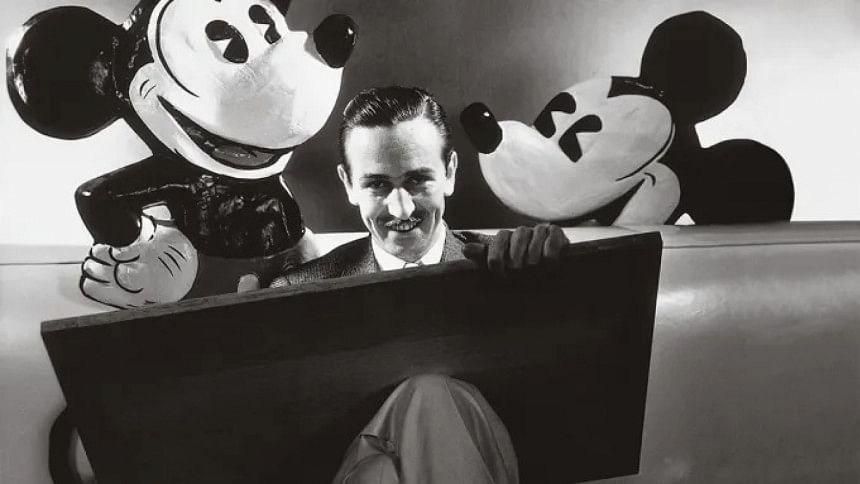Mickey Mouse enters public domain after lengthy copyright battle

The iconic figure of Mickey Mouse, entangled in copyright battles for years, is set to finally enter the public domain as of January 1. This milestone comes after a protracted legal fight over the earliest iterations of the beloved character, marking a significant shift in copyright history.
In 1971, artist Dan O'Neill ignited a countercultural controversy by portraying Mickey Mouse in an underground comic book titled "Air Pirates Funnies". This portrayal depicted the iconic mouse engaged in illicit activities, leading Disney to sue O'Neill for copyright infringement.

Despite O'Neill's belief that it was a legal parody, after an eight-year court battle, he was left with a substantial judgment he couldn't pay, agreeing never to draw Mickey Mouse again to avoid imprisonment.
"It's still a crime for me," stated O'Neill, now 81, from his Nevada City residence, emphasising the hefty penalties he'd face if he dared to draw Mickey Mouse again.
With Mickey and Minnie Mouse's imminent entry into the public domain, Disney will lose its exclusive control over the earliest versions of these characters. This event has stirred excitement within the copyright community and symbolises a turning point in the ongoing copyright saga, according to Jennifer Jenkins, Director of the Duke Center for the Study of the Public Domain.
Jenkins, who celebrates Public Domain Day annually, noted that this year's list of newly liberated works includes Tigger and other 1928 creations like "Lady Chatterley's Lover", "All Quiet on the Western Front", and Buster Keaton's "The Cameraman".
The expiration of Mickey Mouse's copyright is significant, as it marks a change after years of extended copyright terms. The anticipated freedom to reinterpret characters has already been shown through adaptations like "The Great Gatsby Undead" and "Winnie the Pooh: Blood and Honey", signalling potential avenues for the creative reinvention of these classic characters.

Lawrence Lessig, a prominent advocate on copyright issues, stressed the need for balance in copyright laws and the wider interests involved, pushing for reforms that promote access to cultural output that currently remains inaccessible due to commercial value and ambiguous ownership.
While Disney will retain copyrights for modern versions of Mickey Mouse, concerns linger regarding the company's use of trademark law to limit creative expression. Despite this, the entry of Mickey Mouse into the public domain signifies a potentially transformative era for artists and creators worldwide.
O'Neill said he targeted Mickey because he associated the mouse with Walt Disney's conservative politics and with President Nixon. For others, he represents consumerism, cultural imperialism, or childhood nostalgia. Starting on January 1, he will be free for all to reinterpret.
"We're stuck with Mickey Mouse. He belongs to everybody," O'Neill said.

 For all latest news, follow The Daily Star's Google News channel.
For all latest news, follow The Daily Star's Google News channel. 









Comments